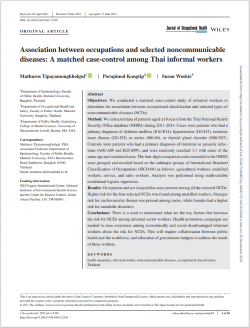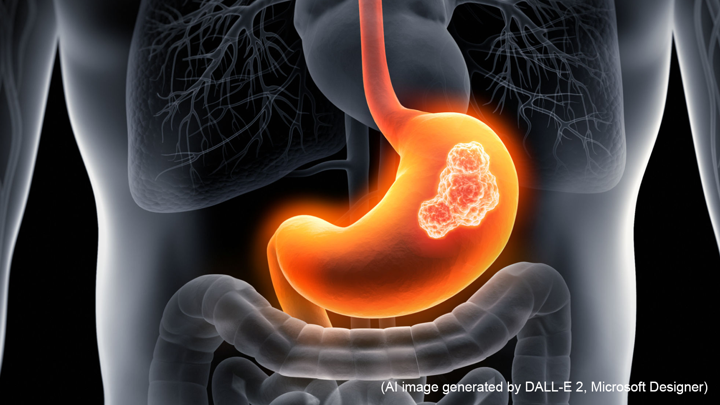#0132 Non-Communicable Diseases in Lower Income Groups: Dealing with Risky Business

Non-Communicable Diseases in Lower Income Groups: Dealing with Risky Business
Non-communicable diseases (NCDs) are diseases that are not transferred directly from person to person. These were (and even during COVID, continue to be) the leading cause of death worldwide.
Most deaths caused by NCDs are reported from low and middle-income countries having underprivileged populations. The prevalence of risk factors, like tobacco smoking and alcohol consumption, has been found to be associated with poorer socioeconomic conditions. With much research dedicated to studying the social determinants of NCDs, a group of researchers looked at the occupational distribution of NCDs in Thailand, an aspect not commonly considered in population studies.
A large part of the Thai population works in the informal sector ̶ which includes agricultural, unskilled, and service and sales workers ̶ and do not enjoy employment benefits like health insurance, leaves, worker’s compensation, or protection from occupational hazards.
The researchers studied workers with 5 NCDs ̶ diabetes mellitus, hypertension, ischemic heart disease (IHD), strokes, or thyroid gland disorder ̶ keeping other socioeconomic data constant. They found that a higher percentage of unskilled workers, as well as those in service and sales jobs suffered from an NCD ̶ mostly diabetes mellitus. Unskilled workers were at the highest risk of being diagnosed with an NCD. Service workers were also at significantly elevated risk of cardiovascular diseases, i.e., IHD and stroke compared to agricultural workers. There was an inequality between males and females as well, with women more at risk of developing hypertension and metabolic disorders, and men more at risk of developing cardiovascular disorders.
Most of the study population had received a primary level of education and belonged to the informal sector, occupation-wise. These workers earn the least monthly income, which may result in adverse living and social conditions among them, and behaviors such as smoking, alcohol consumption, and poor diet, which predisposes them to NCDs.
In Thailand, agricultural workers are proactively screened and undergo health check-ups, but unskilled, sales, and service workers do not. This reflected in the data studied, as the latter groups were more predisposed to developing NCDs.
If the risk factors are recognized and the workers educated and counselled early on, they will be more aware and the chances of them developing behaviors like smoking and alcohol consumption, that would predispose them to an NCD, might reduce. The findings of this study highlight the need for health education and promotion among certain lower socioeconomic groups.

Link to the original journal article:
https://academic.oup.com/joh/article/63/1/e12249/7249869
Title of the paper:
Association between occupations and selected noncommunicable diseases: A matched case-control among Thai informal workers
Authors:
Mathuros Tipayamongkholgul, Pornpimol Kongtip, Susan Woskie
DOI:
10.1002/1348-9585.12249




